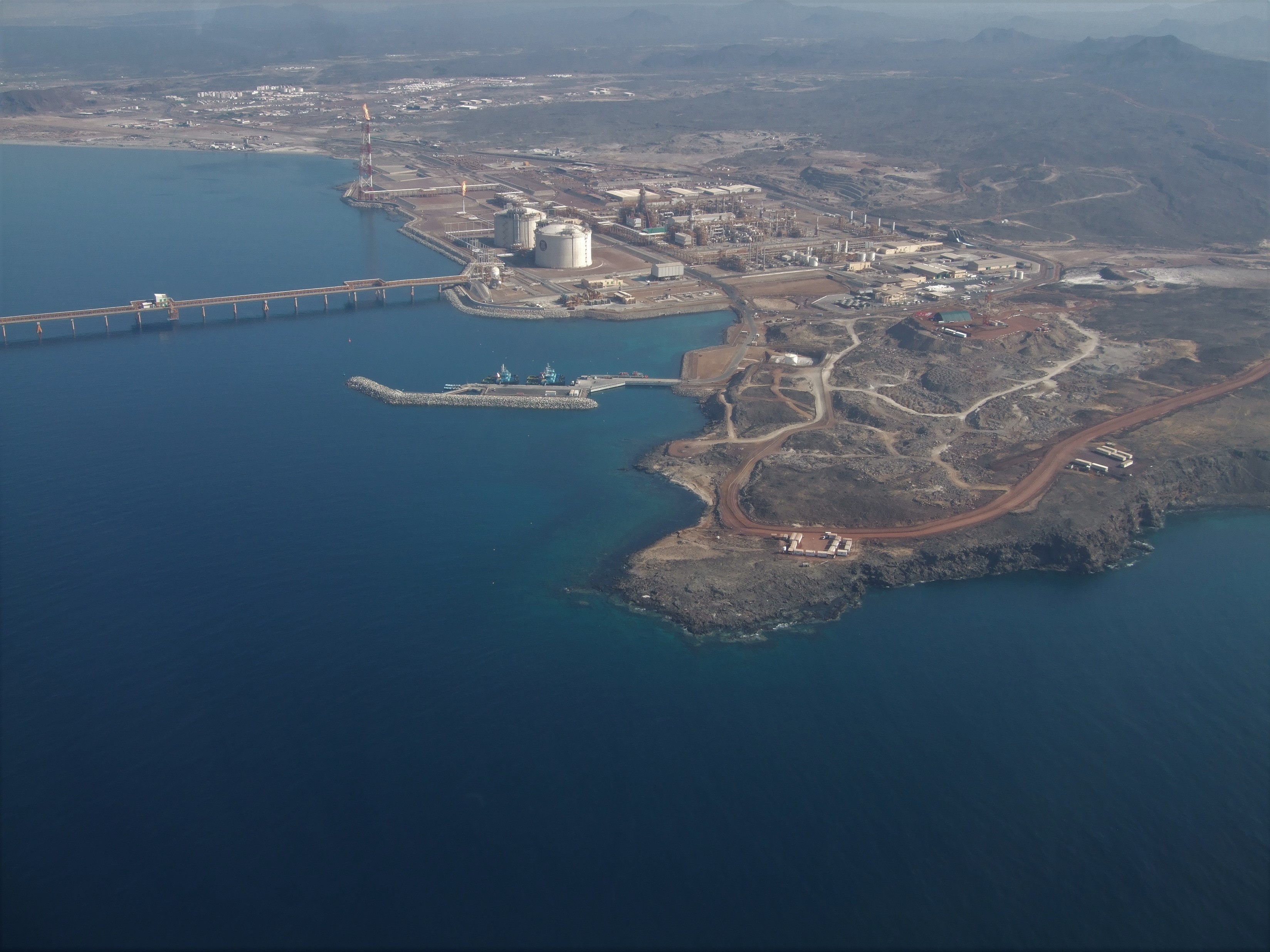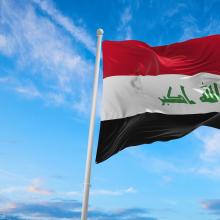September 18, 2020

On June 2, 2020, the Association For Victims Of Torture In UAE and MENA Rights Group requested the intervention of several United Nations Special Procedures on behalf of a Yemeni national who was subjected to torture and ill-treatment, by Emirati forces, inside secret detention centres across the Shabwah governorate, Yemen, in 2018. The victim was detained for two weeks inside the Balhaf coalition base located inside a gas liquefaction plant, in which the French company Total holds substantial interests. Although the United Arab Emirates (UAE) should be held accountable for the violations committed in Balhaf, Total should not be exempt from liability either.
Background
The reported human rights violations fall within the context of the Yemeni civil war opposing the Houthi movement, which is in control of San’aa, and Yemen's internationally recognised government, which is supported by a coalition of Arab States led by Saudi Arabia and the UAE.
In August 2015, the UAE deployed ground troops in support of the Yemeni government and its allies against both the Houthi rebels and Al Qaeda in the Arabian Peninsula (AQAP). In the summer of 2019, the UAE announced it would withdraw its forces from the country.
Secret detention and torture
On May 18, 2018, the victim went to Yemen to visit relatives residing in Ataq. After crossing the border between Saudi Arabia and Yemen, he was arrested by gunmen loyal to the Emirati armed forces at a checkpoint in Shubeika. Following his abduction, he was detained in various detention facilities that are under the direct control of the Emirati armed forces.
The victim was initially detained in a barrack called “Maaskar”, located in Ash Al Shubeika. On May 20, 2018, he was transferred to the Balhaf coalition base. During the trip, he was subjected to mock executions. When he arrived, he was thrown to the ground as he was pushed out of the truck and told “you just arrived in hell, we will kill you and you will never leave this place.” The victim was detained in Balhaf for 17 days, during which he was questioned by Emirati officers about alleged ties with AQAP, the Islamic State of Iraq and the Levant (ISIL) and the Al Islah party. During this time, he was pulled by the beard and hit in the face several times. His Emirati interrogators also threatened to hand him over to the Americans.
On June 6, 2018, the victim was taken to the Mounawara central prison in Mukalla, a facility officially under the control of the Yemeni government, where his fingerprints and retinal signature were collected. From there, he was transferred to the former Al Rayyan airport, which had been converted into a secret detention centre run by UAE forces. There, he was subjected to further physical and psychological torture, including threats of rape and murder. He was also transferred twice to an unknown detention centre in order to be interrogated by the CIA, who concluded that he was not a threat to American interests. The victim was eventually released on June 25, 2018 after being instructed not to speak about his detention.
Balhaf coalition base
The Balhaf coalition base, where the victim was detained incommunicado, is located inside the Balhaf gas liquefaction plant, which is operated by Yemen LNG. In mid-March 2017, the plant was requisitioned by the Yemeni Government. The site was then taken over by the Emirati armed forces, which set up a coalition base to detain individuals suspected of terrorism. Since then, recurring human rights violation involving Emirati forces have been reported on the site.
In 2018, the Panel of Experts on Yemen – established by the UN Security Council – mentioned having investigated a case of detention at the Balhaf site in 2017. In November 2019, several French NGOs released a report – Operation Shabwa: France and Total at war in Yemen? – which determined that the site was used as secret prison between 2017 and 2018, detailing several accounts of arbitrary detention and inhuman and degrading treatment, such as torture and denial of medical care, by Emirati forces. French newspaper Le Monde indicated that the site continued to be used to detain prisoners incommunicado in 2019.
Total's human rights obligations
Total owns nearly 40% of Yemen LNG, a Yemeni company, which operates the Balhaf gas liquefaction plant. Pursuant to French Law No. 2017-399 on the corporate duty of vigilance for parent and instructing companies, Total published its first vigilance plan in which the company committed to abide by various international standards, including the UDHR and the United Nations Guiding Principles on Business and Human Rights (Guiding Principles).
As the main shareholder of Yemen LNG, we are concerned that Total has failed to uphold some of the obligations contained in the Guiding Principles. Total’s initial vigilance plan makes no reference to the Yemen LNG project and does not contain a risk analysis of holding a significant shareholder position in a company which operates in a country where serious violations of fundamental human rights and freedoms have been reported since the escalation of the conflict in 2015.
In its second vigilance plan, Total explained that Yemen LNG fell outside its Vigilance Plan because Total “does not control Yemen LNG”. However, we affirm that Total exercises a sufficient level of control over Yemen LNG to be obliged to address the human rights implication of keeping a presence in Balhaf. No other shareholder of Yemen LNG possesses directly or indirectly a portion greater than Total. In fact, since 2008, Yemen LNG has been directed by general managers with strong connections with the French company.
Not only did Total failed to identify the adverse human rights impact of the Yemen LNG project, but it never communicated on the steps taken to address its human rights impact. Under Guiding Principles No. 11 and 13, Total is obliged to “address adverse human rights impacts with which they are involved” and to “seek to prevent or mitigate adverse human rights impacts that are directly linked to their operations, products or services by their business relationships, even if they have not contributed to those impacts”. Had Total estimated that it did not possess the necessary leverage on the Emirati forces, the company could have opted for a divestment strategy. At the time of writing, Total remains Yemen LNG’s largest shareholder.
France, as Total’s host State, also has an obligation to ensure that businesses respect human rights in conflict-affected areas as prescribed in the guiding principles. We note that the French government took no concrete steps to ensure that Total fulfils its due diligence obligation, even after it was formally informed in November 2019 that human rights violations were allegedly taking place at Balhaf.
On November 27, 2019, MP Alain David demanded clarifications from the French Minister of foreign affairs, Jean-Yves Le Drian, concerning alleged human rights violations committed inside the Balhaf gas liquefaction plant. Le Drian explained that he was “conducting an investigation to try to figure out what might have happened.” The findings of this investigation have yet to be published prompting Mr David to ask a follow-up question to the Minister on July 1, 2020. In his response, Mr Le Drian merely relayed some of the information provided by Total in a press release issued on November 7, 2019.
UN Allegation Letter
On July 14, 2020, the Special Rapporteur on torture and other Cruel, inhuman or degrading treatment or punishment, the Working Group on Enforced or Involuntary Disappearances, and the Special Rapporteur on the promotion and protection of human rights and fundamental freedoms while countering terrorism sent an Allegation Letter to the United Arab Emirates. The UN experts expressed their grave concern about the fact that the victim was “forcibly disappeared, held incommunicado in unofficial detention facilities in Balhaf and Rayyan, reportedly under the control of UAE forces, for 28 days, which removed him from the protection of the law, and subjected him to an increased risk of torture and ill-treatment.” In their letter, the use of interrogation techniques by security officers and methods of intimidation amounting to psychological torture was also raised.
The allegation was also addressed to the United States of America due to the fact that American intelligence officials allegedly engaged in the extraterritorial interrogation of the victim. The letter was also addressed to the internationally-recognised Yemeni Government, as Yemeni forces were also involved in the victim’s detention, particularly in Mounawara central prison. In addition, the violations suffered by the victim show that Yemen failed to ensure that the actions taken by Emrirati forces on its territory comply with international human rights law.
Outstanding questions
While taking note of Total’s claim that, until November 2019, it was not aware of the violations committed inside the Balhaf coalition base, and that the Yemen LNG project was falling outside its Vigilance Plan, a series of outstanding issues remain to be addressed by Total, including to:
1. State whether Total has up-to-date information on the current presence of Emirati troops on the Balhaf site;
2. Provide more explanations as to why the Yemen LNG project allegedly does not fall under Total's 2019 Vigilance Plan in light of the degree of control it exercises over Yemen LNG;
3. Clarify whether Total has taken any steps with the Emirati authorities since it was made aware of the serious human rights violations committed in Balhaf;
4. In the event that Total does not possess leverage on the Emirati forces, clarify whether, as Yemen LNG’s main shareholder, it intends to withdraw from the Yemen LNG project in light of the reported human rights violations.
Total’s response
The above questions were sent to Total via the “Company Response Mechanism” of the Business & Human Rights Resource Centre.
On July 7, 2020, Total provided a response, stating that it did “not have a controlling interest in Yemen LNG and does not intervene directly at the Yemen LNG-operated Balhaf site.” It further stated that it had “no authority to act on behalf of Yemen LNG” and, when made aware of allegations, “requested, and continues to request, information from Yemen LNG”, which had “asked the Commander of the Coalition in Balhaf who had denied such allegations”. Lastly, Total claimed that as it did not control Yemen LNG, it was falling outside the scope of the Vigilance Plan by virtue of the French law on the corporate duty of vigilance.
Commenting on this response, MENA Rights Group regretted that the information provided by Total was only reiterating previous statements and did not provide any new information, including as to whether Total had taken steps with the Emirati authorities since it was made aware of human rights violations committed in Balhaf.
We note that Total does not intend to withdraw from the Yemen LNG project. In its response, Total explained that the measures taken since 2015 aimed at preserving the Balhaf site so “that it can resume LNG production once peace has been restored in Yemen.”
We further reiterated that Total exercise a sufficient level of control over Yemen LNG to be obliged to address the human rights implication of keeping a presence in Balhaf, as it remained the largest stakeholders, and considering that since 2008, Yemen LNG has been directed by general managers with strong connections with Total.
--
*The present article was modified on July 3, July 13, and September 18, 2020 in order to include new information brought to our attention. We will continue to update this page should we receive new information regarding the situation in Balhaf.
Photo credit: courtesy of the IUCN Independent Review Panel






